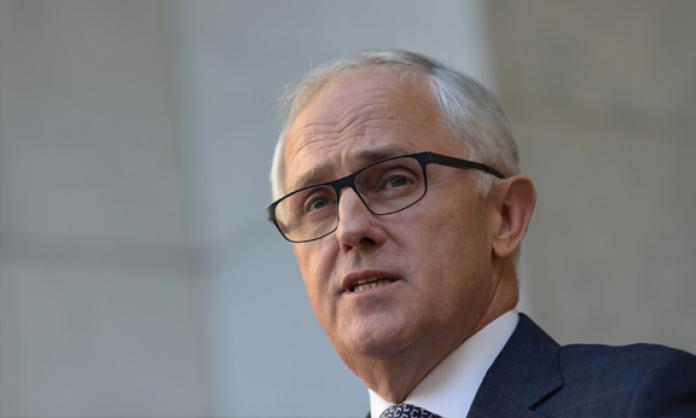The gloss has well and truly come off the toff from Point Piper.
After Malcolm Turnbull surgically removed Tony Abbott, media expectations were high. Now we supposedly had a “modern” prime minister who would put the dark Abbott days behind us. Australia would no longer be an embarrassment on the world stage.
The more liberal sections of the media and the middle class hoped that Turnbull would soften some of Abbott’s most reactionary social policies: at long last legalise same sex marriage, ease up on refugee and Muslim bashing and start to actually do something about climate change.
Big business was also very happy to see the back of Abbott. Abbott and Hockey had proved utterly incapable of delivering an agenda of sacrifice and austerity. Turnbull presented himself as the suave innovator who would push through economic “reforms” (i.e. savage cutbacks) and not be distracted by right wing ideological shibboleths on social issues.
The bosses hoped that he could deliver key items on their long wish list – an increase in the GST, a major reduction in company tax, more government subsidies for big business, savage cuts to Medicare, hospital expenditure, pensions and social welfare more generally, plus a further round of deregulation and privatisations.
While it is great to see the tide beginning to turn against the silver tail Turnbull, that does not mean we should simply fall in behind Labor or the Greens.
As for the rest of us, we were simply glad to see the back of Abbott.
After six months, there have been no bold initiatives. It is pretty much disappointment all round, and the polls are turning against the Liberals.
Despite some softening of rhetoric, Abbott’s core social policies have been retained. Refugees are still being locked up in atrocious conditions in concentration camps, and nothing serious has been done to address climate change.
The harassment of Muslims is set to step up further with the appointment of extreme right winger Andrew Nikolic as chair of the parliamentary Joint Intelligence Committee. Turnbull has gone out of his way to ensure that far right Liberal MPs are not deselected, and the government has launched a homophobic attack on the Safe Schools program.
Turnbull has now announced a massive increase in military spending to 2 percent of GDP by 2020/21 – earlier than previously promised – an overall increase of $29.9 billion. At the same time, we are told that government spending on things we actually need, like health services, pensions, education and social services more generally, is “unaffordable” and needs to be cut back.
Meanwhile, wages have stagnated, growing at only 2.2 percent for the year to December 2015 – the lowest growth in decades. Unemployment remains stubbornly high at 6 percent. And to ensure that it is even harder to win a decent pay rise or better and safer working conditions, Turnbull has stepped up his anti-union rhetoric and is trying once again to push a raft of anti-union laws through the Senate.
Nonetheless, the bosses and the economic commentators are far from happy. They increasingly see Turnbull as a do-nothing prime minister. Rather than taking “bold” measures, fearful of a popular backlash, Turnbull has retreated from increasing the GST and other major tax changes. Instead, he has launched a scare campaign against Labor’s modest proposals to rein in some of the worst rorts associated with negative gearing and capital gains tax exemptions.
The benefits of negative gearing overwhelmingly go to well-off Liberal Party voters who own large numbers of properties. The claim by the Property Council – the real estate agents’ lobby group – that large numbers of relatively low income earners gain from negative gearing is utterly misleading.
It is true that a number of individuals with a low taxable income benefit from negative gearing, but that’s because various multimillionaires can afford to hire top notch tax accountants to ensure that virtually none of their income is classified as taxable. Indeed, Turnbull himself has previously acknowledged that negative gearing is nothing more than “tax avoidance”.
Treasurer Scott Morrison is making much of the evils of tax bracket creep. But again this likely is another cover for looking after the interests of those on high incomes.
The latest polls reflect the growing disenchantment with the government, though Turnbull’s personal approval rating remains high.
Despite the growing unease in corporate circles, big business and the media barons at this stage would still very much prefer a Liberal to a Labor victory in this year’s election. They presumably hope that if Turnbull is elected in his own right, he would then have the authority and a mandate to push ahead with more decisive neoliberal measures to boost company profitability.
The other major thing that Turnbull has going for him is the abject weakness of the ALP. It is true that, over the last couple of months, Labor has put forward a few moderately progressive policies on tax and education, and Shorten has been somewhat feistier in attacking Turnbull.
But Labor’s record in office under Rudd and Gillard and previously under Hawke and Keating has been woeful when it comes to defending, let alone advancing, the interests of workers and the oppressed. Labor has consistently played by the rules of the big end of town and has repeatedly shafted its own working class supporters to defend corporate profits. On key issues like national security and refugees, it has remained in lock step with the Liberals.
So while it is great to see the tide beginning to turn against the silver tail Turnbull, that does not mean we should simply fall in behind Labor or the Greens. We need something a hell of a lot better. We need to build a fightback on the ground and a socialist movement that is unambiguously committed to advancing the interests of the great majority of people in our society, not the top end of town.









